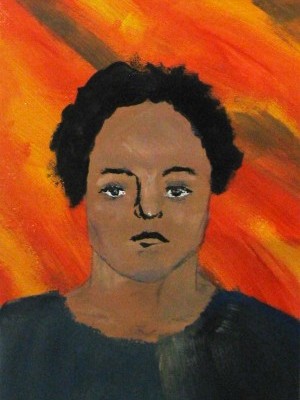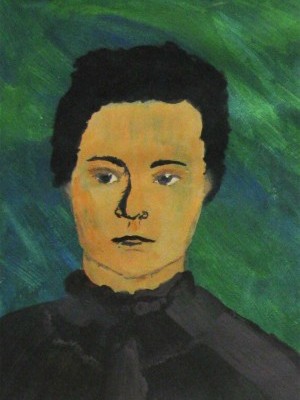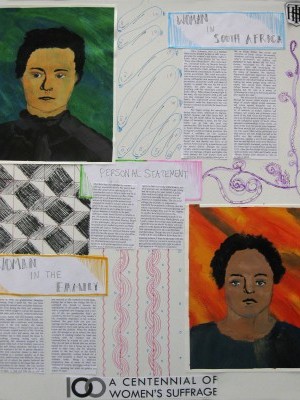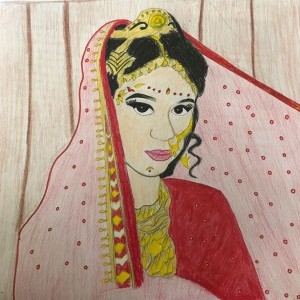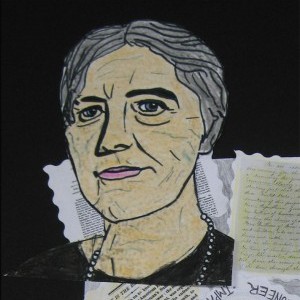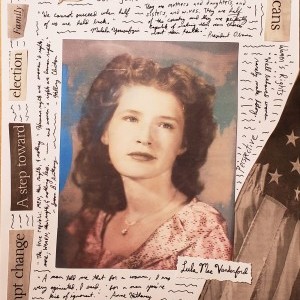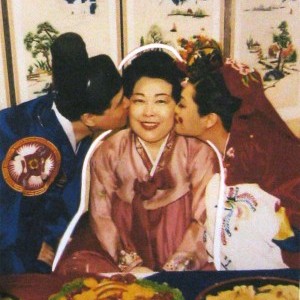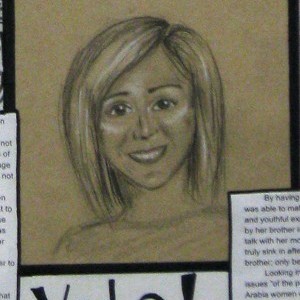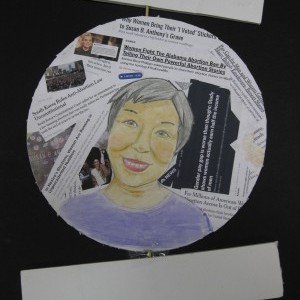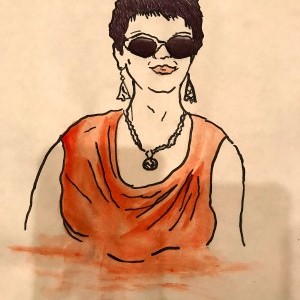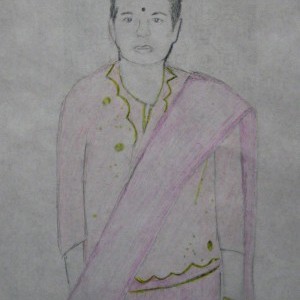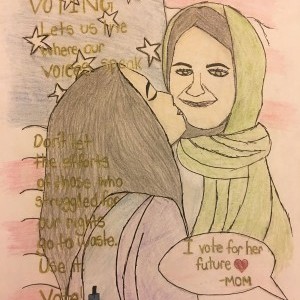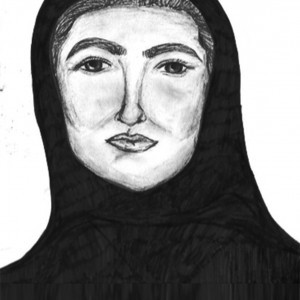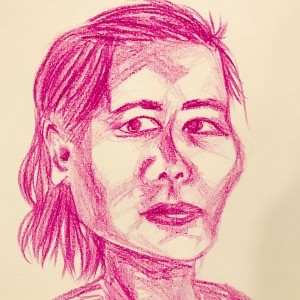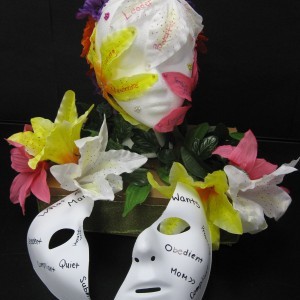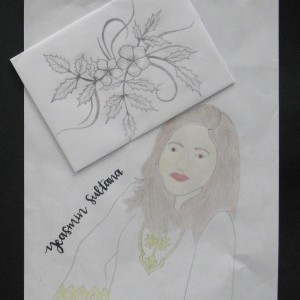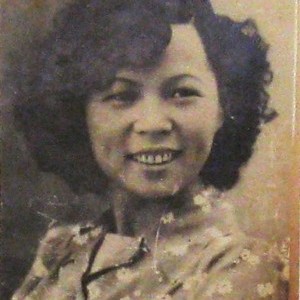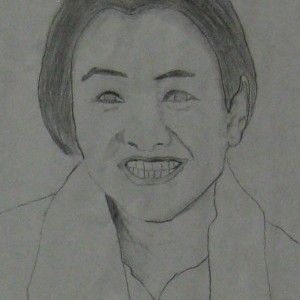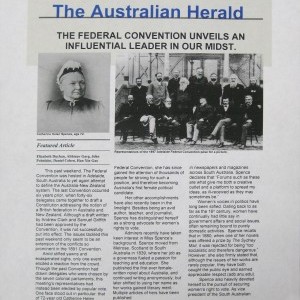Serena Shibu
Townsend Harris High School | Flushing, NY | 11th Grade
Inspirational Family Member
My Grandmother
Born in 1946, my grandmother Saramma George lived a quiet life. She was born during the second wave of Indian Feminism, but lived during the third and continuous wave which sought to correct the injustices that came with a family-oriented patriarchal society, mainly rape and domestic violence.
India, especially (South India) Kevala, my hometown, had a relatively rural landscape even in the 21st century, the nearest neighbor being a 10-minute-hike away and the terrain, tropical and full of life. Growing up around cows and nature, she and her brothers had to help around the house by cooking, cleaning, raising cows, and gathering. Her education stopped at 10th grade while both of her brothers went on to get past college education, and she was told that it was too expensive for her to pursue education. She took typewriter classes to land a job working as a secretary quickly, as in that time, qualifications were different. Once she got out of school, her parents believed she was more helpful in the house than she was providing for the family.
She was married off to a rising doctor at the age of 24, given no rights to land and little say in who she was married to. He worked in North India, forcing her to leave her village life for a contested city, where she was forced to become the embodiment of the perfect housewife. Hit with a completely new language and a new way of life, my grandmother didn’t go outside for the first 16 years of my mother’s life, completely dependent on her working husband. She gave birth one year into marriage and then again a year later and was discouraged to move past taking care of the house and the children. When the children were old enough to go to school, her days consisted of washing clothes by hand and cooking until the children and the husband (when he wanted to) came home. They moved back to Kerala after my mother passed her 20s into a house set up to be closer to their roots, and for attracting women to the two boys in the family because apparently, women looked for a man with property, a belief my parents continue to hold today. Being relatively progressive in terms of what was expected of women, she began voting in the 1900’s speaking her mind on politics for nearly 30 years.
Historical Figure I Admire
Olive Schreiner
Olive Schreiner, born to a German father and an English mother in 1885 was an advocate for women’s and human rights in South Africa, and best known for her novel Story of an African Farm. She wrote many raw, emotional works on feminist theories and the various social injustices during this time, specifically, black suffrage in South Africa and the concentration of wealth in the corrupt government. Her vocal and public cries were moving and influential, spreading among suffragettes and empowered similar movements around the world spreading her ideas of equality. She was the ninth of twelve children, her early days were spent traveling with her missionary parents in South Africa. When money became tight in her teens, she was forced to find a job, and was thus estranged from her family. She experienced sexual abuse and harassment under her supervisors but was forced to continue to provide for herself and her family.
She began writing her manuscripts during these times, influenced by Darwin, Herbert Spencer, and John Stuart Mill. In 1881, she left South Africa for England in hopes of becoming a nurse, but her own health was so bad, this goal was unachievable. This forced her to move back to South Africa and she threw herself in, loving her country but hating injustices. She found a publisher for her longtime manuscript, the semi-autobiographical novel under Chapman and Hall of London in 1883, though her true identity was covered by a pseudonym until the second edition of Story of an African Farm. Though the novel initially stirred controversy over its liberal views on marriage, religion and rights, this book became her best known work and acclaimed as the first realistic description of life in South Africa. Her novels and criticisms of South African Government, oftentimes mirroring problems we have in today’s government and politics, was published in both Britain and her home country; it was influenced by the ideas of the women’s rights movement and encouraged the sparking of ideas and conversation through the means of literature. She fearlessly denounced imperialist aggression of South Africa, racial prejudice and was a strong advocate for individual freedom in hopes of making her nation prosper along with her causes. Her second book, Women and Labour became the “bible for feminists” arguing that the vote is a means of ‘protecting the weak from the strong and the poor against the weak.’
Her advocacy for peace and equality through her pieces, which reached a wide range of people helped spread awareness and action against inequality and for suffrage. Her movements also spurred on a lot of backlash, as archaic tradition and unhappy rich owners and politicians ruled much of the land. Given her English roots and a lot of time spent in England, her view on the indigenous people of South Africa appeared condescending in her novels, yet most of the time, her pieces were impartial. Her blunt attitude and raw emotions put out onto paper often led to politicians and their actions not only being exposed to the public eye, but also led to reforms and changes happening, causing a lot of rich people to hate her and her work even more. However, she passionately continued, paving the way for women later on in South Africa, specifically in 1913, when the first South African women’s rights protests were held until finally South African women were allowed to vote on January 1, 1994.
What the Project Means to Me
My life is heavily impacted by women halfway around the world. My past is freer that the conservative upbringing of my grandmother and my future might not be as controversial and dynamic as that of Mrs. Schreiner’s, yet these women and their actions in the past and the present have changed the world in the present in ways to allow me to grow in the way I’ve been allowed to.
Higher education and voting for women happen because of women in the past, fighting to make these liberties available to me. As stated by John Locke, government is in place to protect individual liberties. Based on this philosophy, the government should be given power needed to protect and help, not rule and exploit. Voting is our way of putting our input into the laws that are made and have a say into who has the power. My voice should be as important to politicians as any other citizen regardless of gender, ethnicity or sex. Humanitarian issues and social injustices such as the repression of the right to free speech and controversies over one’s rights to their own body unfortunately still exist and can only be fixed through voting and advocating for your beliefs.
Locally, statewide and federal elections are all important especially because of the way America is designed today. The electoral college, for example, is supposed to represent the population’s desires, thus the voters’ responsibility is to elect people that will make the changes they want to see. Apathy on smaller level elections led to the population not being represented properly in the past presidential election. Both globally and locally, issues that compromise unalienable rights for anyone should be taken seriously and it is in the hands of the voters to get the best representatives to advocate for them and their ideas. Though the way I impact the world will be very different from these two amazing women, I hope to advocate with the same sort of fervor we see in women in the past gaining and using their right to vote to fight against social and civic injustice.
Explore the Archive
More From This Class
Click on the thumbnails below to view each student's work.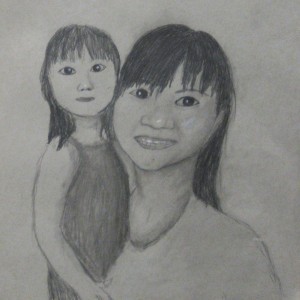
Vivian Chen, Josephine Chen, Ivan Chan, Zafirah Rahman, Neeharika Reddy, Daniel Shi, Daniel Shi, Jacqueline Cho & Osiris Guerrero
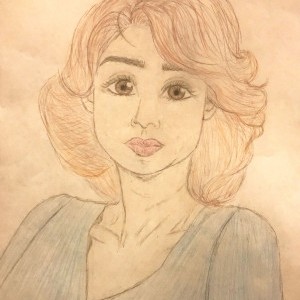
Jennifer Moran, Adebola Ademola, Julia Hong, Vicki Kanellopoulos, Inga Kulma, Maimunah Virk, Deborah Molina & Kailey Van
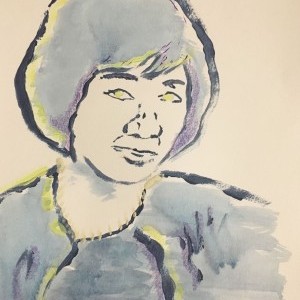
Kristina Chang, Sarah Chowdhury, Bethany Leung, Letian Fang, Cathy Choo, Kelly Chan, Emily Tan, Adamary Felipe & Kenney Son

